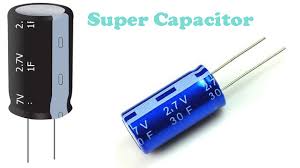
Scientists at the International Advanced Research Centre for Powder Metallurgy and New Materials (ARCI) have developed a simple, low-cost, environmentally friendly, and sustainable super capacitor electrode derived from industrial waste cotton which can be used as an energy harvester storage device.
Daily Current Affairs Quiz 2020
Key-Points
Super capacitor is a next-generation energy storage device that has received extensive research attention owing to advantages such as high power density, long durability, and ultrafast charging characteristic as compared to conventional capacitors and lithium-ion batteries (LIB).
For the first time, natural seawater is explored as an environmentally friendly, cost-effective, scalable, and alternative aqueous electrolyte, which may replace the existing aqueous-based electrolytes for the economic fabrication of super capacitor.
Among the four main components of super capacitor electrode, electrolyte, separator, and the current collector, the first two are the pivotal components, which directly determine the electrochemical behaviour of the super capacitors.
The fabrication cost of electrode materials, as well as electrolytes, should be reduced because these two components account for major portion of the device manufacturing cost.
In search of a cost-effective material for making affordable super capacitor devices, scientists at ARCI have converted industrial waste cotton (Trash) into highly porous carbon fibers (Treasure) by activation process and then utilised the porous carbon fibers to make high-performance super capacitor electrodes.





